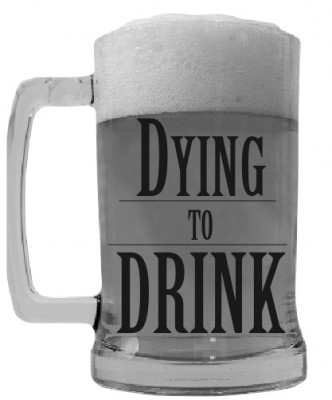
Anorexia and bulimia are nothing shy of serious problems and college students are one demographic most at risk for these these types of eating disorders. However, health professionals are starting to see a new trend on the rise: drunkorexia.
“Drunkorexia is a slang term that refers to limiting food intake in order to drink more alcohol,” says Mary Ann Sprouse, director of the Office of Alcohol, Drug & Health Education at George Mason University.
In addition to being able to drink more alcohol, young adults might be tempted to indulge in this type of behavior in order to become inebriated more quickly and to consume fewer calories from food. While drunkorexia is not an official medical term, health officials are gradually beginning to examine the repercussions that ensue from drunkorexic tendencies.
“Drunkorexia is treated as an eating disorder with the substance abuse being a secondary disorder,” Sprouse says. “There are no formal studies looking at this behavior. However, we see studies that show binge drinking and alcohol abuse are on the rise among women who are also more prone to eating disorders.”
Acknowledging the negative behavior associated with drunkorexia, some health professionals are considering the fact that it could possibly serve as a gateway disorder to other substance abuse problems and eating disorders.
“Between 20 and 30 percent of eating-disordered patients also suffer from substance abuse problems,” Sprouse said.
The attitude among students regarding drunkorexia can be difficult to examine. Some think that because it’s not an official medical term, they have license to indulge. If anything, they might see the practice as a fun, growing trend among party-goers. Other students think that the issue should not be taken lightly, especially since it can severely affect one’s health and self-image.
“I’ve heard of people doing it, but I didn’t actually know there was a term for it,” says Helena Okolicsanyi, a sophomore global affairs major. “I think it is pretty dangerous. People aren’t aware of how much they consume. It depends on the person.”
With any alcohol-related disorder, there is a risk for serious medical problems. For drunkorexics, these risks increase since their bodies are weakened from consuming little to no food. Stomach ulcers, liver disease, alcohol poisoning, increased suicide risk, depression and even fatal cardiac arrhythmias can result over time from increased alcohol abuse.
“[Drunkorexia] is definitely something to take seriously and [the Office of] ADHE continues to query students about this behavior when they come in for services,” Sprouse says.
Increased pressure from the media could be to blame for pushing young women and men towards underaged drinking and also towards an idealized Hollywood body image. However, there is the notion that teenagers will be teenagers and that they have always shown the desire to have fun, let loose and express themselves. Some students have even raised the possibility of lowering the drinking age to combat the high number of alcohol-related disorders.
Although not as widespread as other eating disorders, drunkorexia can still lead to serious problems if abused for long periods of time.
If you or someone you know is in need of help for a substance abuse-related disorder, contact the university’s Counseling and Psychological Services at caps.gmu.edu or the Office of Alcohol, Drug & Health Education at adhe.gmu.edu.






Comments